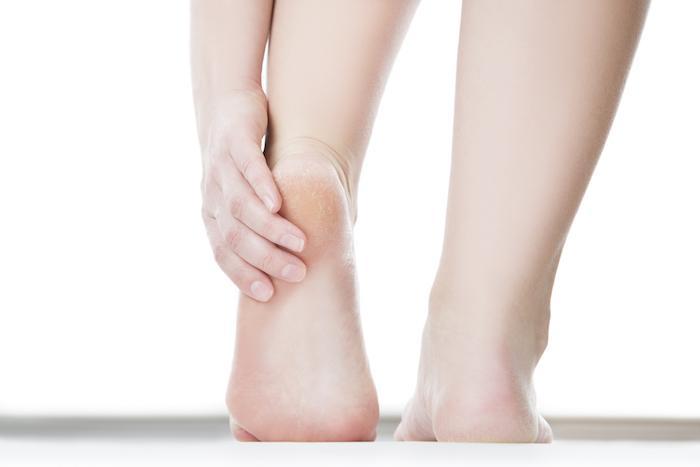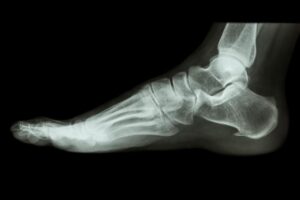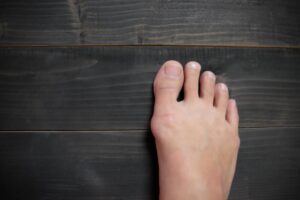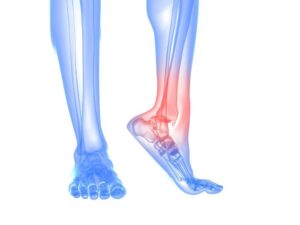What Causes Plantar Fascitis?

If you’ve ever gotten out of bed ready to face the day, only to be met by excruciatingly painful heel pain as you take those first morning steps, you’ve likely experienced plantar fasciitis. Plantar fasciitis is a painful foot condition that causes the most discomfort when you take your initial steps after long periods of rest.
Ryan Golub, DPM, the board-qualified podiatrist at Arizona Foot Health in Phoenix, Arizona, regularly helps sufferers from plantar fasciitis find relief. Dr. Golub explains the most common causes of plantar fasciitis.
Understanding plantar fasciitis
The plantar fascia is a band of tissue located under your feet, extending from the bottom of your toes to your heels. When functioning properly, the plantar fascia helps you walk by absorbing shock as you walk and providing arch support.
You experience plantar fasciitis when the plantar fascia tissues become irritated. This inflames the plantar fascia, causing pain, especially when walking after a rest period.
Common causes of plantar fasciitis
Your plantar fascia can become irritated for a number of different reasons. These are the most common causes behind plantar fasciitis.
Feet structural abnormalities and leg tightness
Some people develop plantar fasciitis because of structural abnormalities and tightness that exists in their feet and lower legs. Such abnormalities include flat feet, high arches, and being prone to tightness in your achilles tendon.
High activity levels or spending much of the day on your feet
Very active individuals who spend lots of time on their feet are more likely to get plantar fasciitis from the stress the activities put on your plantar fascia. You’re at a higher risk of plantar fasciitis if you have a highly active job where you stand most of the day, such as working in a retail position or being a server at a restaurant.
You also put additional stress on the plantar fascia if you regularly run, especially on pavement or concrete, or do other high-impact athletics. This can also include activities where you’re regularly jumping.
Being overweight or obese
You have higher odds of developing plantar fasciitis if you’re overweight or obese. This is because additional weight puts more pressure on the plantar fascia.
Your age
Your plantar fascia is more easily prone to irritation as we age. Therefore, your likelihood of getting plantar fasciitis goes up after age 40.
Wearing unsupportive shoes
Regularly wearing unsupportive shoes causes your plantar fascia to experience higher levels of wear and tear. Frequently wearing shoes with soft soles or lacking in good arch support, such as flip flops or high heels, can cause plantar fasciitis.
Treating plantar fasciitis
If you’re experiencing painful plantar fasciitis, Dr. Golub works with you to find a long-term solution. Depending on the severity and duration of your condition, he develops a treatment plan personalized to your specific needs.
Sometimes, Dr. Golub can help you find pain relief through conservative measures, such as special exercises, custom orthotics, and splints. If those don’t work, he offers long-term pain relief through amniotic growth factor injections, stimulates tissue regeneration and regrowth in the plantar fascia.
To get rid of your plantar fasciitis heel pain for good, make an appointment at Phoenix-based Arizona Foot Health today, by using our online scheduling tool or giving us a call.
You Might Also Enjoy...
The Achilles Heel
Given Arizona’s climate, patients are able to remain active year round. It’s why we all chose to live here. But…
Alleviating Back Pain and Other Benefits of Custom Orthotics You Didn’t Know About
Would you ever imagine that custom foot orthotics could improve your quality of life? That’s what many people say after…
9 Helpful Tips to Prepare Your Home Before Bunion Surgery
When moderate interventions, such as wearing wider shoes or using pads in your shoes, fail to ease your bunion pain…
When Should You Go to the Doctor for an Ingrown Toenail?
In most cases, you can nurse an ingrown toenail at home with over-the-counter pain medication, topical antibiotic creams, and soaking…
6 Home Exercises to Keep Your Ankles Strong
Ankles that feel wobbly and weak are vulnerable to injury. If you play sports, run, jump, or just walk often,…
Is Surgery My Best Option For Treating Bunions?
You have a bunion and it isn’t pretty, but if your bunion is small enough, or doesn’t hurt, you may…






